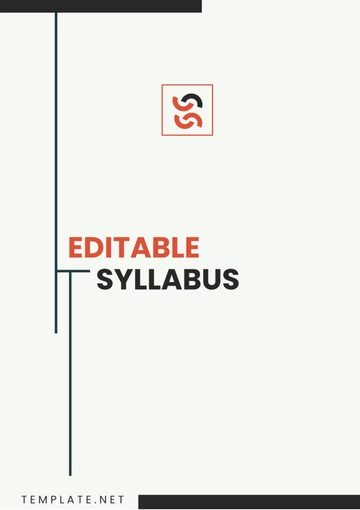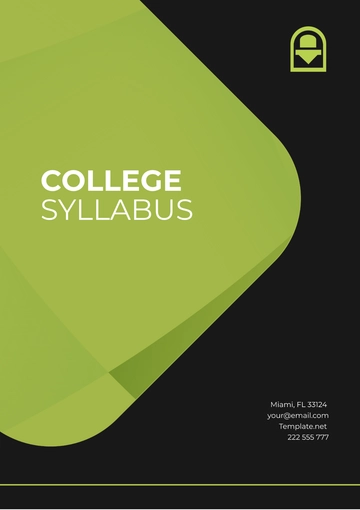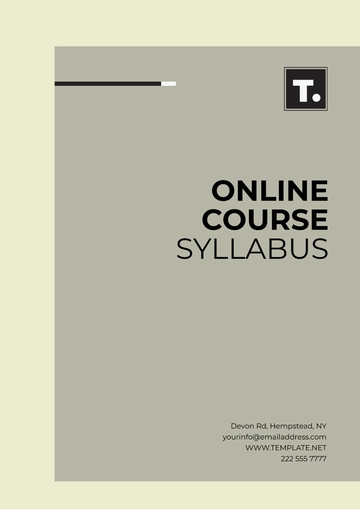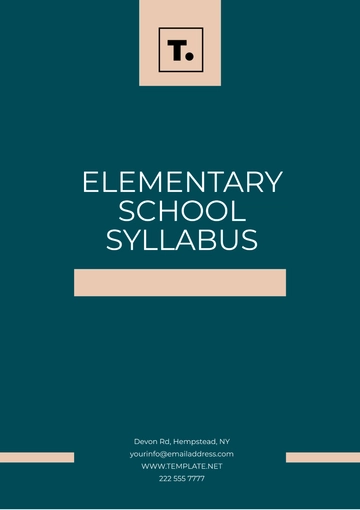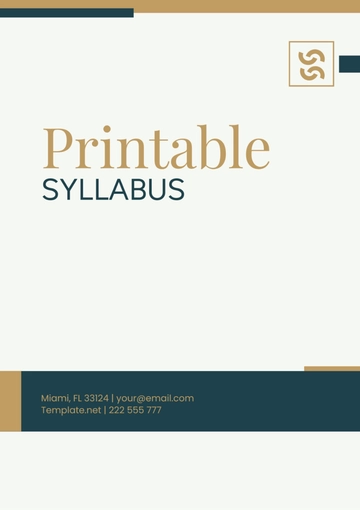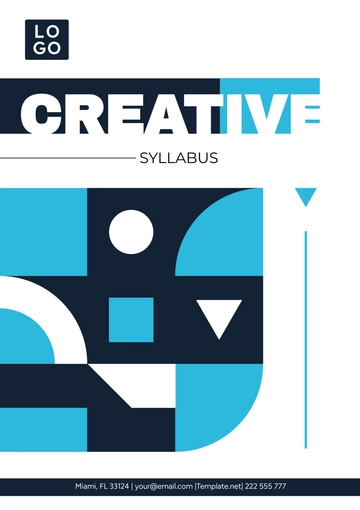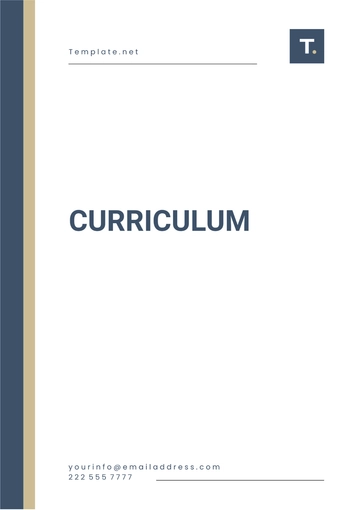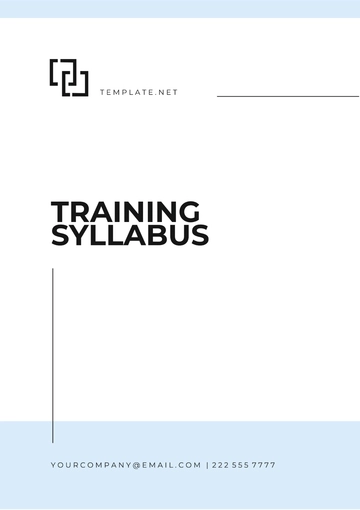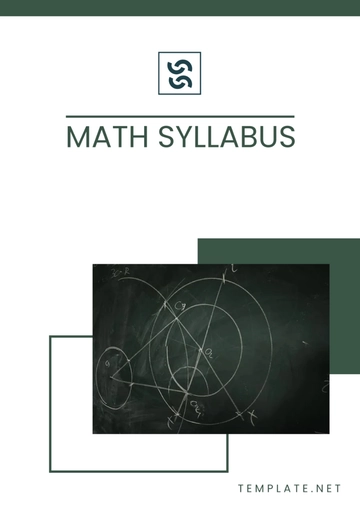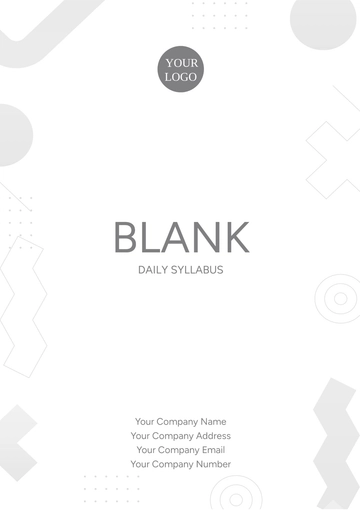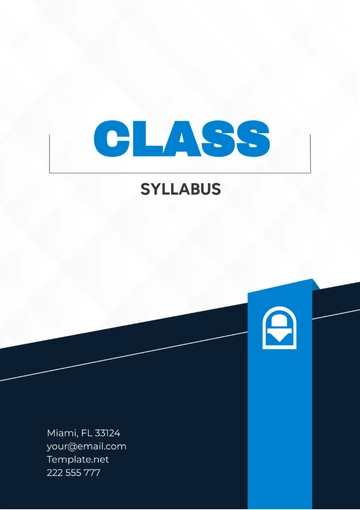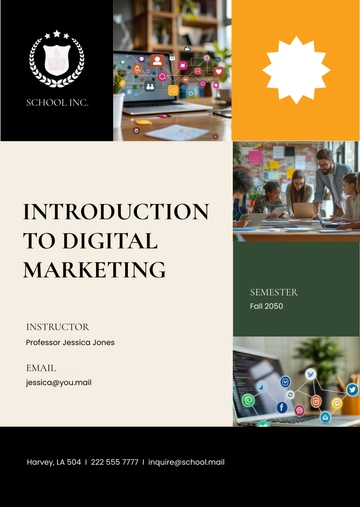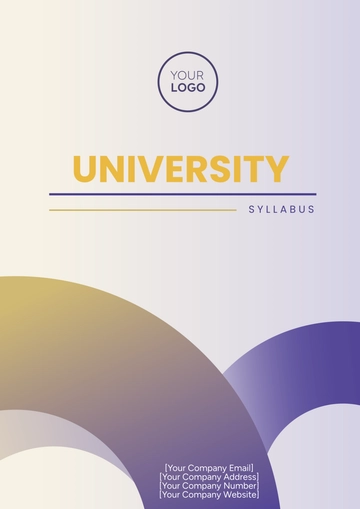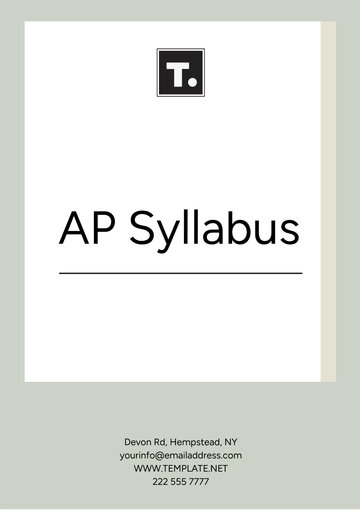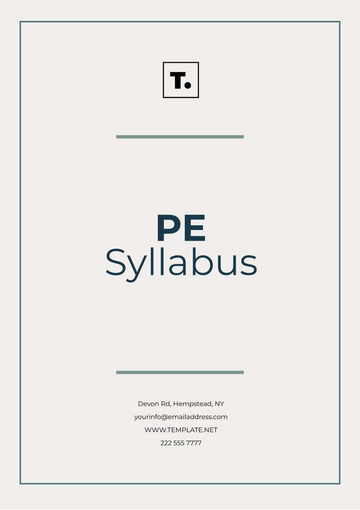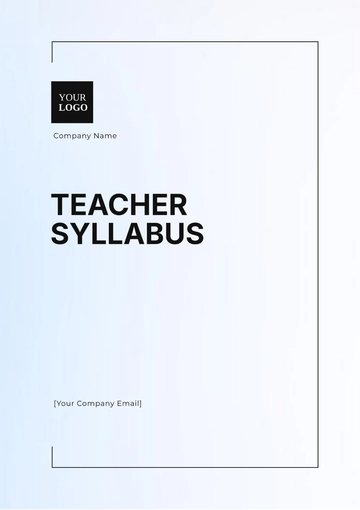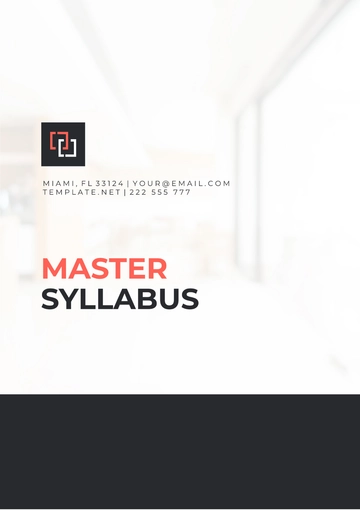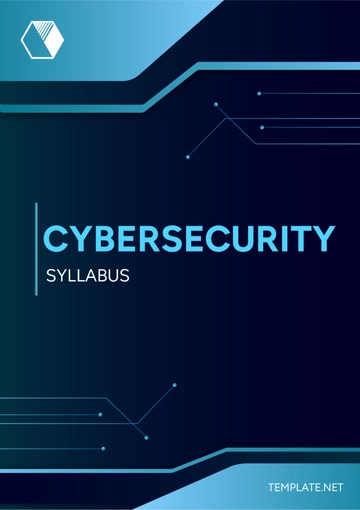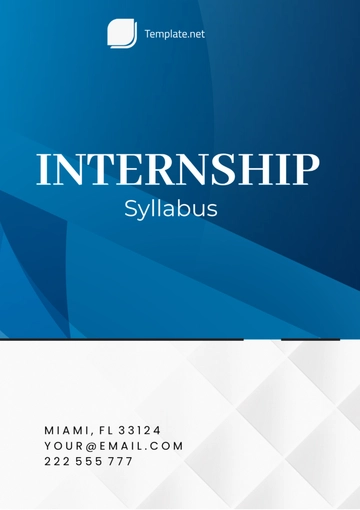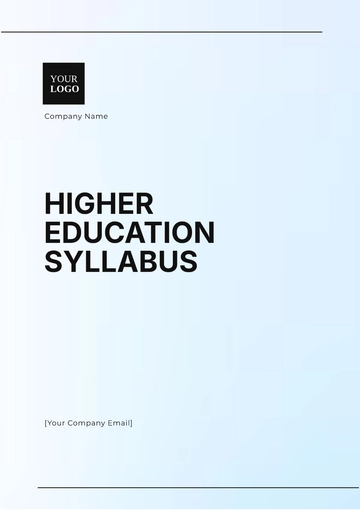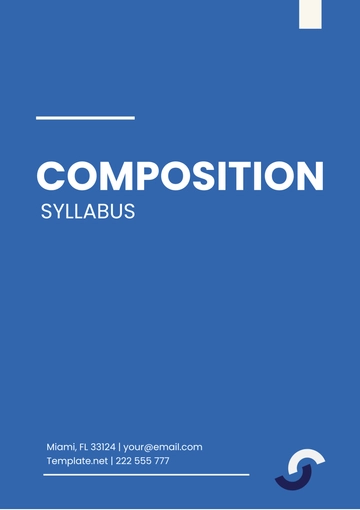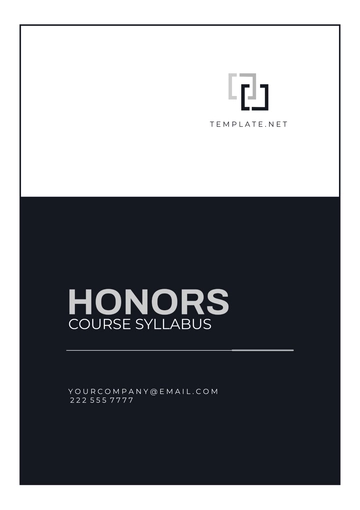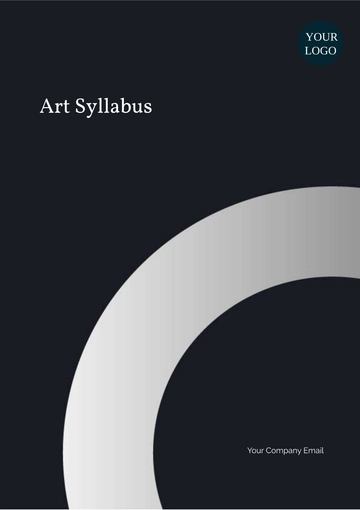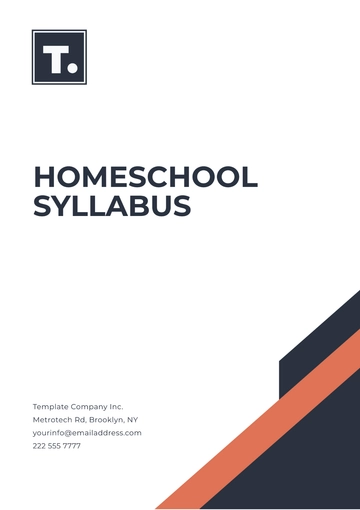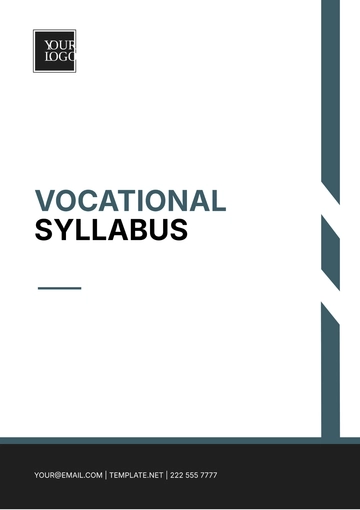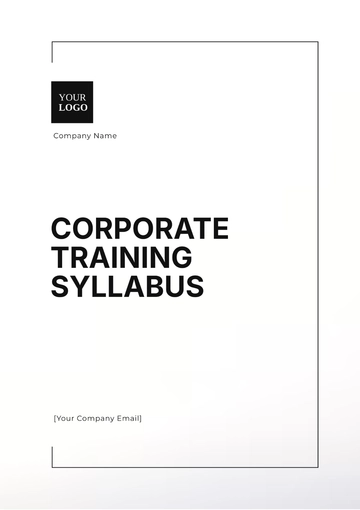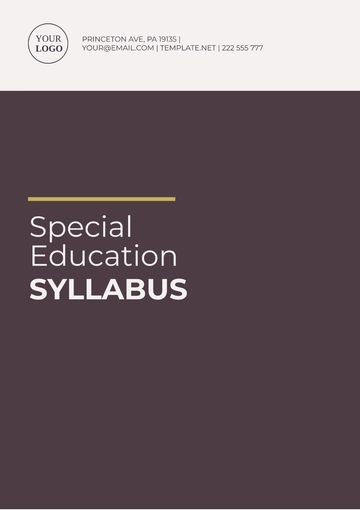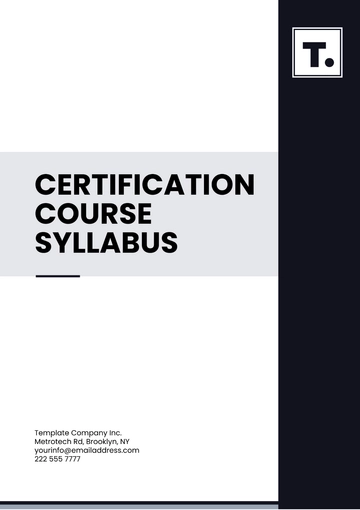Free Environmental Sustainability Syllabus
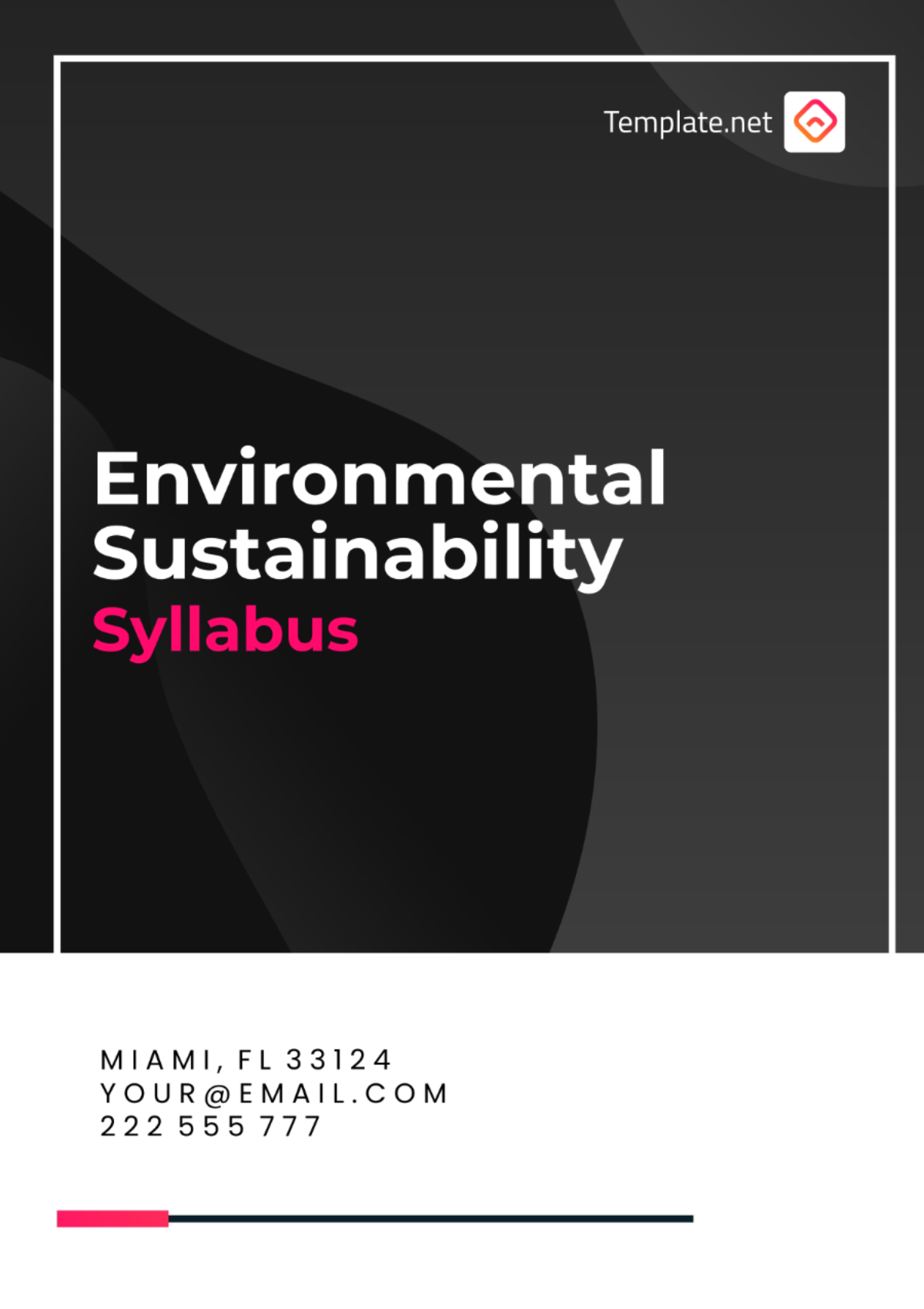
Environmental Sustainability Course
Course Title | [COURSE TITLE] |
Course Code | [COURSE CODE] |
Instructor Name | [YOUR NAME] |
[YOUR EMAIL] | |
Office Hours | [OFFICE HOURS] |
1. Course Description
This course explores the concept of environmental sustainability, emphasizing its complex socio-economic and political dimensions. Students will assess the roles played by policy, culture, technology, and education in advancing sustainable practices.
2. Instructor Information
Organization: [YOUR COMPANY NAME]
Instructor: [YOUR NAME]
Email: [YOUR EMAIL]
3. Learning Objectives
Understand the concept and history of environmental sustainability.
Analyze the socio-economic and political aspects of sustainability.
Evaluate real-world case studies of sustainable practices.
Apply sustainability concepts to personal and professional settings.
Develop strategies for promoting environmental sustainability in a given context.
4. Course Schedule
Week | Topic | Reading Assignment |
|---|---|---|
1 | Introduction to Sustainability | - "An Inconvenient Truth" by Al Gore <br> - "Limits to Growth" by Donella Meadows et al. |
2 | Renewable Energy Sources | - "Renewable Energy: Power for a Sustainable Future" by Godfrey Boyle <br> - "Drawdown: The Most Comprehensive Plan Ever Proposed to Reverse Global Warming" by Paul Hawken |
3 | Sustainable Agriculture | - "The Omnivore's Dilemma" by Michael Pollan <br> - "Farmageddon: The True Cost of Cheap Meat" by Philip Lymbery |
4 | Waste Management | - "Cradle to Cradle: Remaking the Way We Make Things" by William McDonough <br> - "Waste and Want: A Social History of Trash" by Susan Strasser |
5 | Environmental Policy | - "This Changes Everything: Capitalism vs. The Climate" by Naomi Klein <br> - "The Sixth Extinction: An Unnatural History" by Elizabeth Kolbert |
5. Required Reading and Materials
"The Lorax" by Dr. Seuss
"Collapse: How Societies Choose to Fail or Succeed" by Jared Diamond
"Environment and Society: A Critical Introduction" by Paul Robbins, John Hintz, and Sarah A. Moore
"Silent Spring" by Rachel Carson
"This Changes Everything: Capitalism vs. The Climate" by Naomi Klein
6. Supplementary Readings
In addition to the readings that are assigned, there may also be supplementary materials provided. These materials serve to further enhance and promote a better understanding of the topics discussed within the course.
7. Assignments and Assessments
Weekly Reading Responses: Reflect on each week's readings, connecting key concepts to contemporary issues.
Mid-term Project: Analyze a sustainability issue or initiative within a chosen community or organization.
Class Debates: Participate in structured debates on contentious issues within sustainability.
Journal Entries: Maintain a personal journal reflecting on application of sustainability concepts to everyday life.
Final Paper: Write a research paper proposing a strategy for improving sustainability in a specific setting.
8. Course Policy
Attendance: Regular attendance is mandatory.
Participation: Participation in class discussions and activities is strongly encouraged.
Academic integrity: Plagiarism and cheating are unacceptable. Violations will result in disciplinary action.
Late work: Assignments turned in after the deadline will receive a 10% reduction in score for each day late.
Accommodation: Accommodations are available for students with disabilities.
9. Grading Policy
Criteria | Percentage |
|---|---|
Assignments | 20% |
Class Debates | 30% |
Journal Entries | 20% |
Mid-term Project | 10% |
Final Paper | 20% |
Total | 100% |
10. Academic Integrity
It is anticipated that students will perpetually maintain and defend the principles of academic integrity. Should there be any occurrences of dishonest academic activities, such as cheating, copying someone else's work without proper citation, or committing any other forms of deceitful actions in academia, these will be dealt with in alignment with the regulation and disciplinary procedures established by the university.
11. Communication Guidelines
In the context of the course, it is strongly encouraged for students to not hesitate to communicate any queries or concerns they may have regarding the content of their course or their assigned tasks. This communication should ideally occur as soon as possible to allow for immediate and effective resolution. On top of this, feedback is considered as a valuable tool for improvement. Therefore, students' reviews, thoughts and suggestions concerning the teaching materials used in the course and the methods used to deliver these materials would be truly welcomed and highly appreciated.
12. Course Evaluation
The value of your feedback cannot be overstated as it plays a crucial role in enhancing the quality of this particular course. I therefore kindly request that you set aside some time at the conclusion of this semester to fill out the course evaluations. Your input is not only vital in making improvements but is also greatly appreciated.
Disclaimer
The instructor retains the right to make modifications to this syllabus at any point throughout the course of the semester, should they deem it necessary or desirable. Should any changes to the syllabus occur, students will be given prompt notification in order to ensure they are immediately made aware of and can appropriately adapt to the alterations.
- 100% Customizable, free editor
- Access 1 Million+ Templates, photo’s & graphics
- Download or share as a template
- Click and replace photos, graphics, text, backgrounds
- Resize, crop, AI write & more
- Access advanced editor
Discover the pinnacle of eco-conscious education with Template.net's Environmental Sustainability Syllabus Template. Meticulously crafted and fully editable, this customizable resource empowers educators to tailor curriculum content seamlessly. Compatible with our intuitive Ai Editor Tool, it ensures effortless adaptation and alignment with evolving teaching methodologies. Redefine sustainability education effortlessly.

